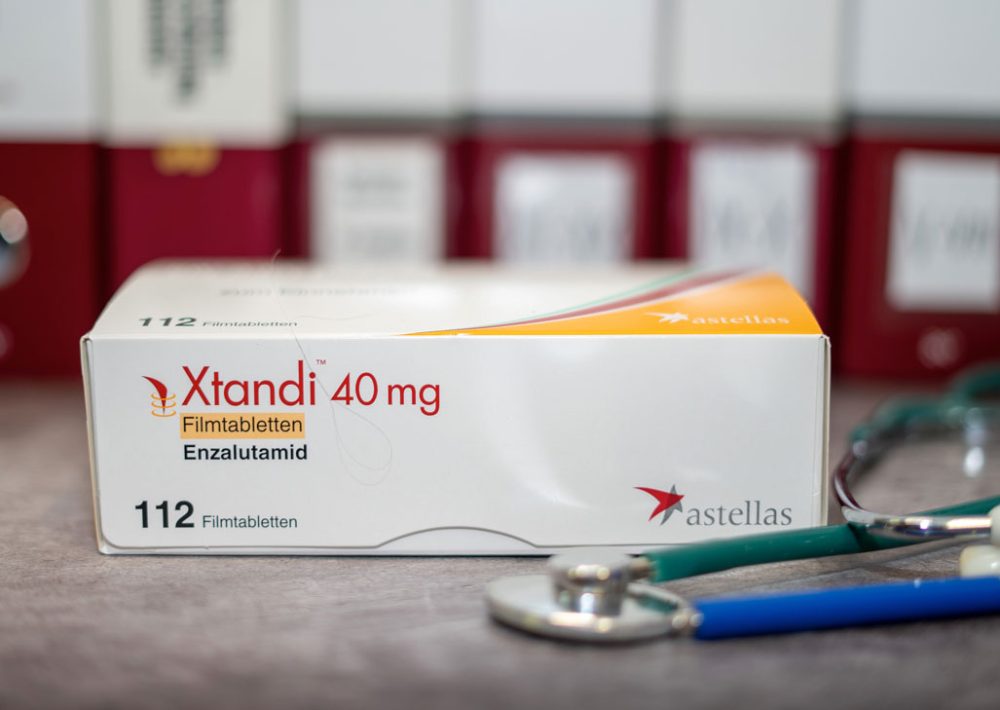Advertisment
Xtandi accepted for EMA review for earlier type of prostate cancer – Astellas

Astellas announced that the European Medicines Agency (EMA) has validated its Type II variation for Xtandi (enzalutamide) for the treatment of patients with non-metastatic hormone-sensitive prostate cancer (nmHSPC ; also known as non-metastatic castration-sensitive prostate cancer or nmCSPC) with high-risk biochemical recurrence (BCR) who are unsuitable for salvage-radiotherapy.
Submission to the EMA was supported by data from the international Phase III EMBARK trial, which evaluated the safety and efficacy of Xtandi in patients with nmHSPC with high-risk BCR across three study arms: Xtandi plus leuprolide (n=355), placebo plus leuprolide (n=358), or Xtandi monotherapy (n=355).
The EMBARK study met its primary endpoint of metastasis-free survival (MFS) for the Xtandi plus leuprolide arm, demonstrating a statistically significant reduction in the risk of metastasis or death over placebo plus leuprolide. Detailed results from the trial were presented as a plenary session during the 2023 American Urological Association Annual Meeting on April 29.
The overall safety profile was consistent with the known safety profile of each of the medicines. Xtandi, either in combination with leuprolide or as a monotherapy, has not been approved by any regulatory agency for the treatment of patients with nmHSPC with high-risk BCR.
About Non-Metastatic Hormone-Sensitive Prostate Cancer with High-Risk Biochemical Recurrence:
In non-metastatic hormone- (or castration-) sensitive prostate cancer (nmHSPC or nmCSPC), no evidence of the cancer spreading to distant parts of the body (metastases) is detectable with conventional radiological methods (CT/MRI), and the cancer still responds to medical or surgical treatment designed to lower testosterone levels. Of men who have undergone definitive prostate cancer treatment, including radical prostatectomy, radiotherapy, or both, an estimated 20-40% will experience a BCR within 10 years. About 9 out of 10 men with high-risk BCR will develop metastatic disease, and 1 in 3 will die as a result of the recurrence. The EMBARK trial focused on men with high-risk BCR. Per the EMBARK protocol, patients with nmHSPC and high-risk BCR are those initially treated by radical prostatectomy or radiotherapy, or both, with a PSA-DT less than 9 months High-risk BCR patients with a PSA-DT of less than 9 months have a higher risk of metastases and death.





